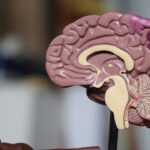Keep calm and carry on!
Explanation of “Being” and “Had Been”.
Duration: 30 minutes.
Introduction
Understanding the difference between “being” and “had been” can help you use these verbs correctly in English. Both words come from the verb “to be,” but they are used in different ways to talk about actions and states.
- “Being” is used to describe something happening right now or an ongoing action.
- “Had been” is used to describe something that was happening in the past but finished before another past event.
In this guide, we will explain how to use “being” and “had been” correctly with simple examples and give you a test to practice. Let’s get started!
Simple Comparison:
- “Being”: Focuses on the present or ongoing state/action.
- Example: The book is being read by many people (happening now).
- Being late is not acceptable.
- She enjoys being outdoors.
- Being a teacher is a rewarding job.
- He was praised for being honest.
- Being patient is important in this situation.
_ _ _ _ _ _ _ _ _ _
- “Had Been”: Focuses on a continuous action/state that was happening in the past and completed before another past event.
- Examples:
- She had been living in New York for five years before she moved to Los Angeles.
- The project had been delayed multiple times before it was finally completed.
- By the time I got to the party, most of the guests had been there for hours.
- He had been working at the company for a decade before he decided to start his own business.
- They had been planning the event for months before it was suddenly canceled.
“Being”
“Being” is the present participle of the verb “to be.” It is often used in continuous tenses and passive constructions to describe actions that are happening now or ongoing actions.
Examples:
- Example 1:
- Sentence: She is being very kind today.
- Explanation: “Being” is used to describe her ongoing behavior of kindness today.
- Example 2:
- Sentence: The cake is being baked in the oven.
- Explanation: “Being” shows the continuous action of baking that is happening at this moment.
- Example 3:
- Sentence: He enjoys being a teacher.
- Explanation: “Being” describes his ongoing state or role as a teacher.
“Had Been”
“Had been” is the past perfect continuous tense of the verb “to be.” It describes an action that was ongoing in the past but was completed before another action took place.
Examples:
- Example 1:
- Sentence: She had been studying for hours before the exam started.
- Explanation: “Had been studying” indicates that her studying was an ongoing action that occurred before the exam began.
- Example 2:
- Sentence: They had been living in New York for five years before they moved to California.
- Explanation: “Had been living” describes their ongoing residence in New York, which was completed before their move to California.
- Example 3:
- Sentence: The car had been running smoothly until it broke down yesterday.
- Explanation: “Had been running” shows that the car’s smooth operation was an ongoing state that ended when it broke down.
Test: Using “Being” and “Had Been”
Choose the correct verb tense (“being” or “had been”) to complete each sentence:
- When I arrived, she __________ (being/had been) very patient with the children.
- The movie __________ (being/had been) shown at the theater for two weeks before it was taken down.
- He enjoys __________ (being/had been) a part of the team.
- The dog __________ (being/had been) walked when I got home.
- She is __________ (being/had been) interviewed by the journalist right now.
- The project __________ (being/had been) worked on for months before it was finally completed.
- The cake __________ (being/had been) baked in the kitchen when the guests arrived.
- He was tired of __________ (being/had been) treated unfairly.
Answers
- When I arrived, she had been very patient with the children.
- Answer: had been
- The film had been shown at the theatre for two weeks before it was taken down.
- Answer: had been
- He enjoys being a part of the team.
- Answer: being
- The dog had been walked when I got home.
- Answer: had been
- She is being interviewed by the journalist right now.
- Answer: being
- The project had been worked on for months before it was finally completed.
- Answer: had been
- The cake had been baked in the kitchen when the guests arrived.
- Answer: had been
- He was tired of being treated unfairly.
- Answer: being
Imagem de cookie_studio no Freepik








